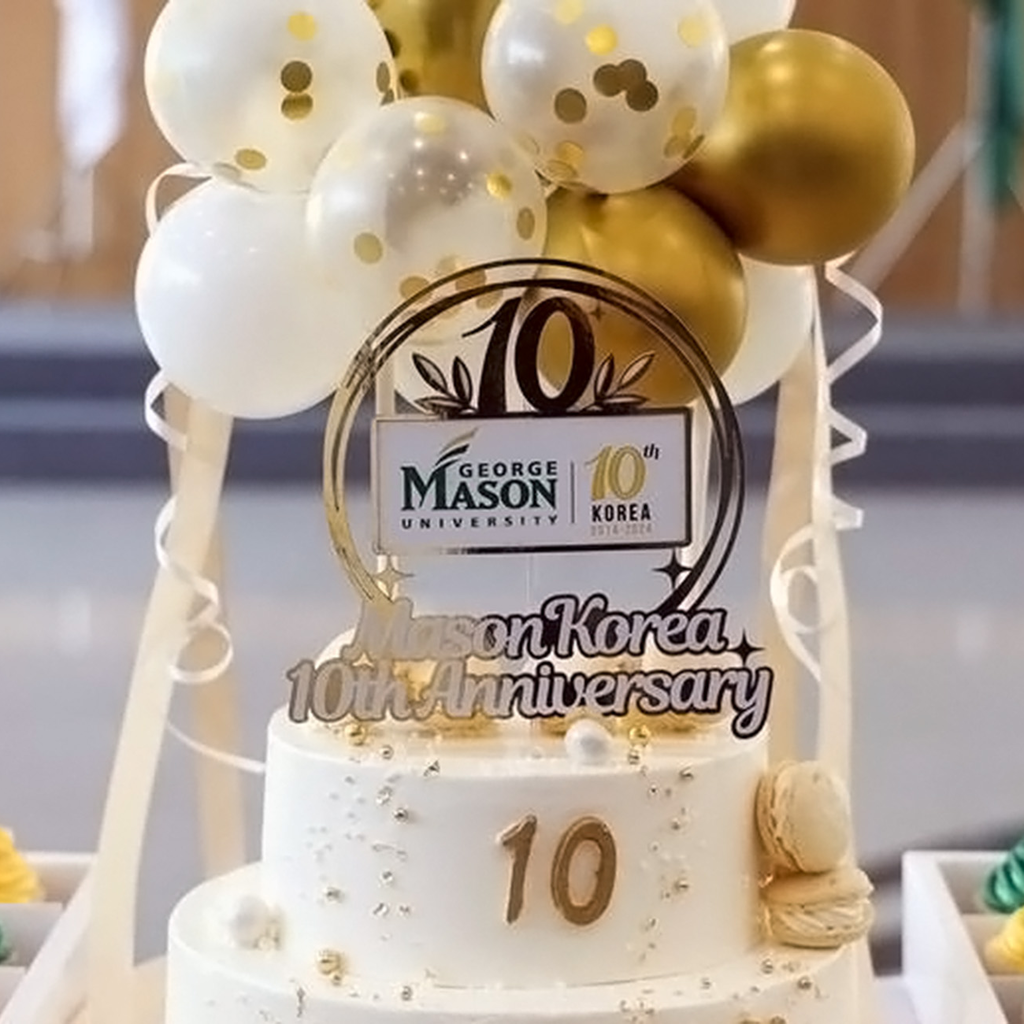Daniel (Seihoon) Lee said felt like an outsider for much of his life. Bilingual, bicultural, and homeschooled for a time, Lee struggled to figure out where he fit in until he came to Mason Korea.

“Mason Korea changed that narrative for me,” said Lee, who graduated in May and is now working on a master’s degree. “Meeting people from various backgrounds, we were all outsiders to the mainstream world in a way. I finally felt like I was home.”
Lee was two years old when he first moved to the United States with his parents who were working on their PhDs at Florida State University. His father accepted a job at his alma mater in South Korea when Lee was in fifth grade, but by then Lee said he felt like he has lost the language and the culture after living abroad for eight years.
“Once I moved to a normal Korean public school, the identity crisis feeling grew stronger for me,” he said, and eventually he chose to be homeschooled in high school. But the experience also helped Lee learn a lot about himself.
“While in my heart I leaned closer to my Korean identity, I preferred learning in English,” he said. “Since I developed those English language skills at a young age, my brain was wired to feel comfortable in that educational setting.”
Lee decided he would attend college in the United States, but then heard about the brand-new Mason Korea in a homeschool classical studies group.
“After learning about [this classmate’s] journey to Mason Korea, I was more curious to know what opportunities were available at a school that only existed for about three years,” he said.
And after meeting the admissions staff there and taking a campus tour, Lee could picture himself at the Songdo campus.
Once enrolled in Mason Korea, Lee immersed himself in extracurricular activities, which he said are the “core essence” of the Mason Korea experience. In his freshman year he joined The Voice, which is the student media group, and eventually became a leader there.
“From reconfiguring the whole media production process and launching ad deals with local businesses offering student discounts, to building a website for online media and analyzing social media data, I learned more about how to run an organization than I ever imagined I could,” Lee said.
He also welcomed internship experiences and even had the opportunity to intern for the Olympic Broadcasting Services at the 2018 Pyeongchang Winter Olympics. He acknowledges that his biculturalism played at a role in his marketability. “I was a U.S. college student in Korea who was able to speak English and connect both cultural spheres in a global context.”’
Connecting spheres also played a role in how Lee chose his major as he was torn between his interests in global affairs and business. “I was fascinated by how geographical environments shape people’s cultures, which affect the economy and in turn influence people’s values and their own unique stories,” he said.
Lee ended up majoring in global affairs and minoring in business. It was a business and legal studies course, BULE 303 Legal Environment of Business, that helped him see how to connect the two interests. He is now working on a master’s degree in higher education and student development.
To students considering Mason Korea, Lee encourages them to write their own legacy. “If you have the desire to be a global leader competent in both Korean and English and both cultural areas, I would recommend that student take a look at Mason Korea and go down a path no one else has been down.”
Lee said the collective educational journey he and his fellow classmates embarked on was transformational.
“These Mason Korea classmates who I consider lifelong friends were all at first nervous about their unknown future, but to see them all find their place and create their own story over the years reminds me again of what it means to be part of the greater George Mason family.”

Related Stories
- January 21, 2026
- November 20, 2025
- November 18, 2025
- November 6, 2025
- November 3, 2025


